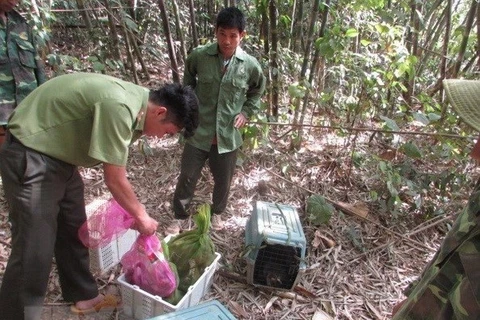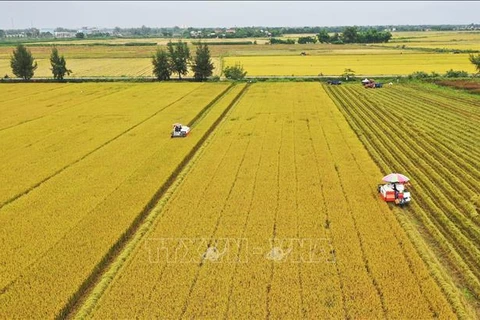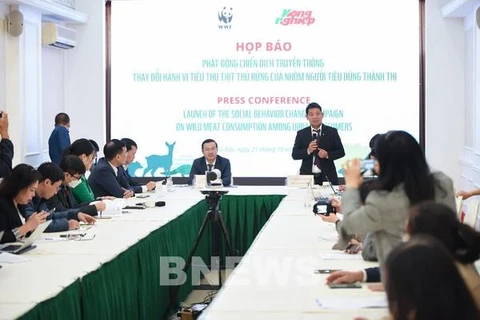 A forest ranger releases a loris back to nature. Vietnam has been strengthening surveillance systems and promoting responsible wildlife trade practices.(Photo: VNA)
A forest ranger releases a loris back to nature. Vietnam has been strengthening surveillance systems and promoting responsible wildlife trade practices.(Photo: VNA) However, the wildlife trade is still a common source of livelihood in many countries in Southeast Asia.
The Ministry of Agriculture and Rural Development (MARD) in close collaboration with the Food and Agriculture Organisation of the United Nations (FAO), the United Nations Office on Drugs and Crime (UNODC), and the United Nations Environment Programme (UNEP) kicked off the Safety Across Asia for the Global Environment (SAFE) project last week.
This project aims to reduce zoonotic disease risks at high-risk wildlife facilities with the generous support of the European Union.
During opening remarks, Vuong Tien Manh, an expert from the MARD, stated that this project would boost the government's effort toward reducing the risks of wildlife trade and bush meat consumption.
"Over the past few years, the Vietnamese Government has been strengthening surveillance systems and promoting responsible wildlife trade practices while preserving livelihoods, enhancing biosecurity in farms and markets, and improving awareness of zoonotic diseases,” Manh said.
“This project will strengthen our work and help us improve captive wildlife management according to the draft national plan," he said.
The SAFE project is a joint initiative implemented in the Laos People’s Democratic Republic, Sabah state of Malaysia, Thailand and Vietnam.
FAO Vietnam Emergency Centre for Trans-boundary Animal Diseases (ECTAD) Senior Technical Coordinator Pawin Padungtod explained that FAO is implementing the SAFE project in Vietnam to support the government in identifying high-risk facilities, including socio-economic impact and risk mitigation, enabling the development of improved national policies and regional cooperation towards better pandemic prevention and preparedness.
The project will also support the development of regional biosafety standards and joint strategies within the Association of Southeast Asian Nations (ASEAN), ultimately strengthening cooperation, and sharing best practices between Vietnam and other ASEAN countries.
Through the One Health approach, efforts are also being made to enhance collaboration between the public health, animal health and environmental sectors.
"The SAFE project was conceived with a clear focus on reducing the risks of future pandemics by targeting both health and crime risks associated with wildlife facilities," says Jenna Dawson-Faber, UNODC SAFE project coordinator.
"It requires collective action among stakeholders to achieve this purpose. And I am grateful that Vietnam and other project countries are continuing to engage with all relevant partners to ensure the project results will benefit the country, ASEAN and global communities," she said./.
VNA






















